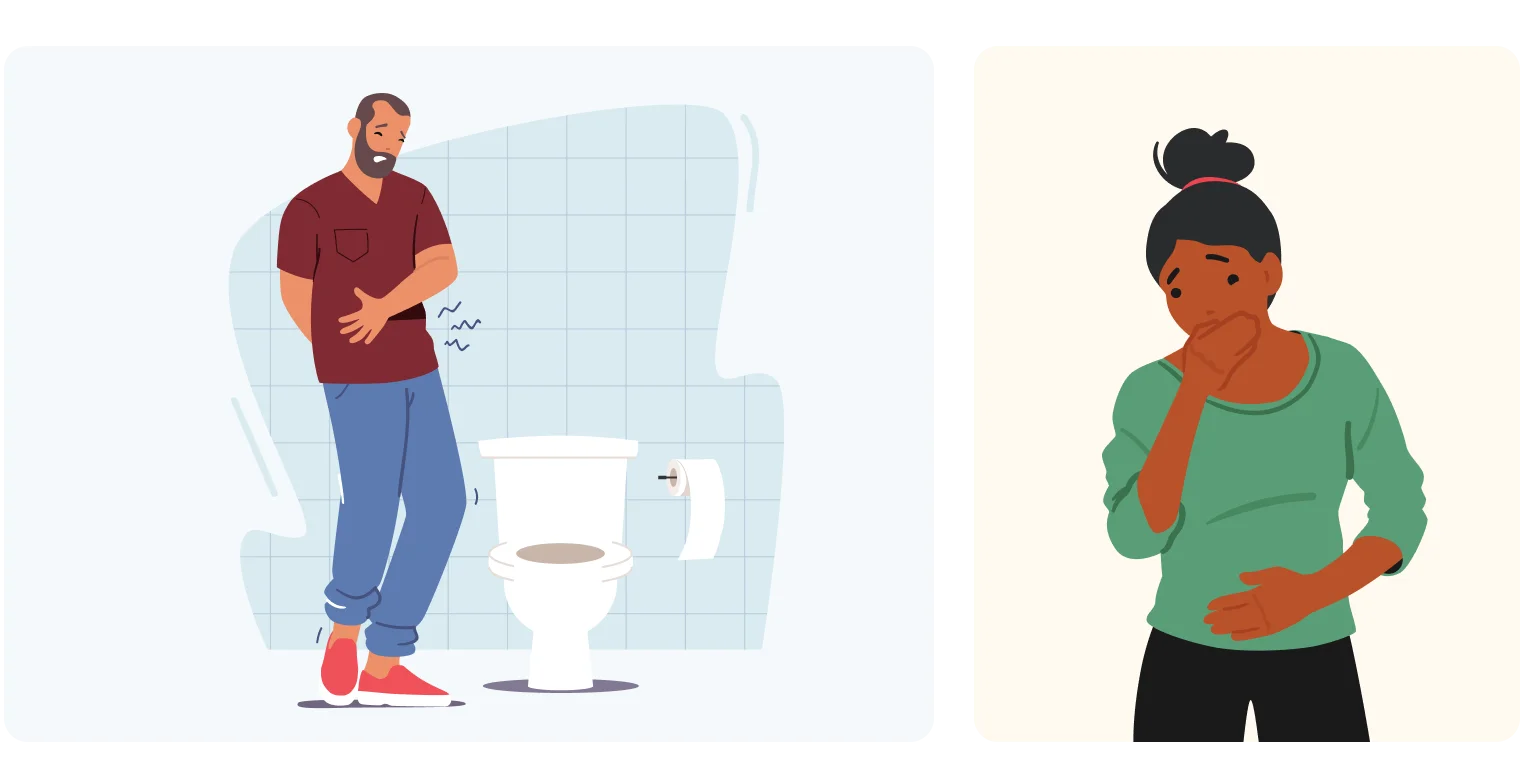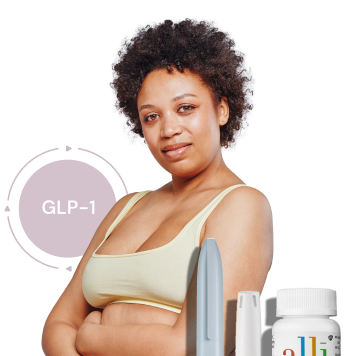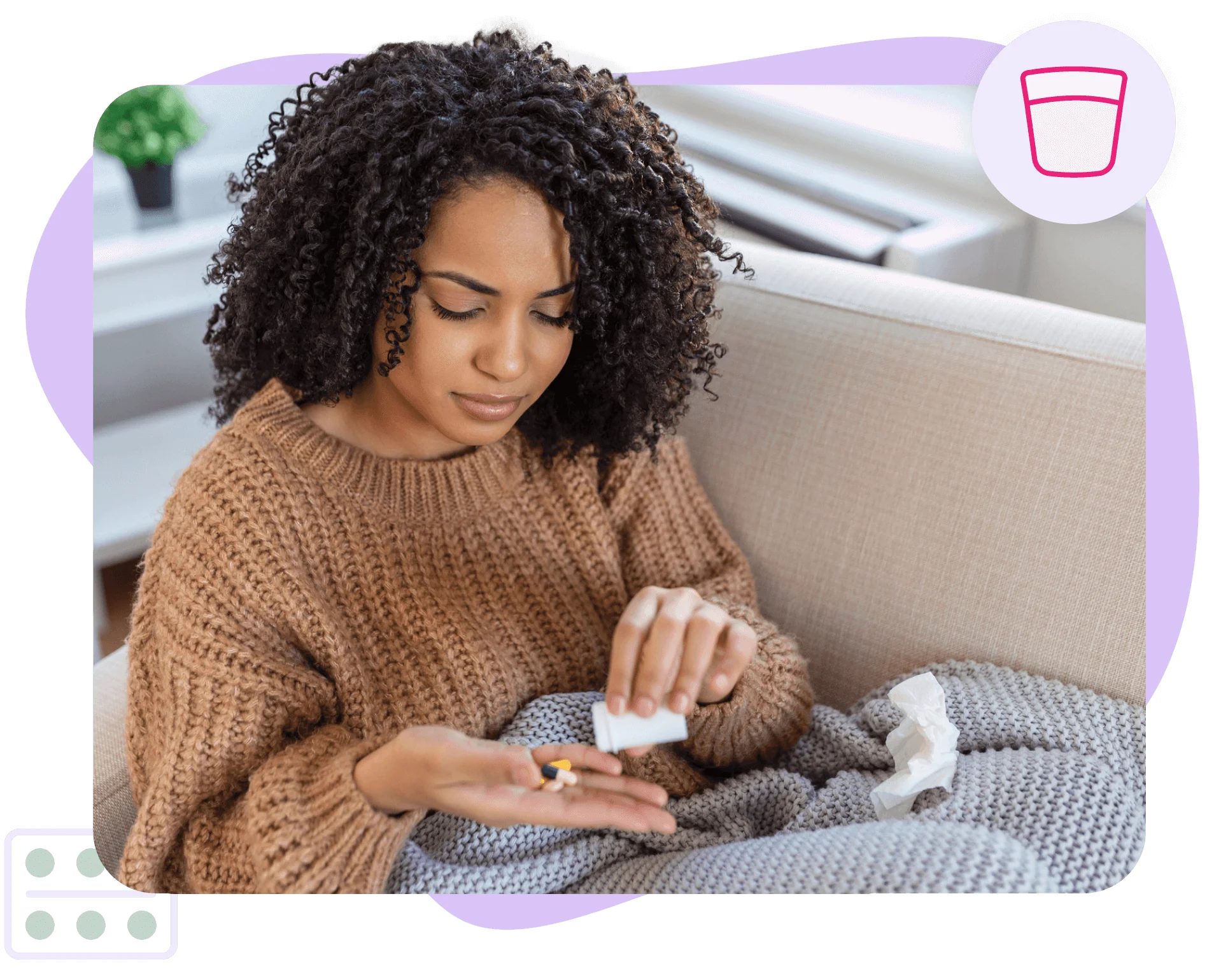About diarrhoea
Diarrhoea is a common condition characterised by frequent passage of loose, watery stools. It typically manifests in two forms: acute diarrhoea, which comes on suddenly and is usually short-lived, lasting just a few days; and chronic diarrhoea, which persists for an extended period, typically more than two weeks.
This digestive disturbance can be caused by various factors including infections, dietary choices, medication side effects, or underlying health concerns. While often temporary and manageable, persistent or severe diarrhoea can lead to dehydration and significantly impact daily life.

Causes
Acute diarrhoea commonly results from:
- Stomach flu (viral gastroenteritis) – the most frequent trigger
- Bacterial infections such as E. coli or Salmonella
- Parasitic infections
- Food poisoning
Chronic diarrhoea typically stems from underlying conditions including:
- Anxiety and stress-related digestive disruptions
- Inflammatory bowel disease (IBD)
- Food allergies or intolerances
- Irritable bowel syndrome (IBS)
- Malabsorption disorders
- Coeliac disease
Symptoms
Common symptoms of diarrhoea to look out for are:
- Loose, watery stool (poo)
- Frequent bowel movements
- Abdominal pain or cramps
- Bloating
- Strong, sudden urge to have a bowel movement
- Nausea and vomiting
- Dehydration
- Weight loss
- Blood or mucus in the stool
How to Treat Diarrhoea
Diarrhoea can usually be treated at home. The most important thing is to have lots of fluids to avoid dehydration.
Do
- Stay at home and get plenty of rest
- Drink lots of fluids, such as water or squash – take small sips if you feel sick
- Carry on breast or bottle feeding your baby – if they have diarrhoea, try giving small feeds more often than usual
- Give babies on formula or solid foods small sips of water between feeds
- Eat when you feel able to – we suggest avoiding foods that are fatty or spicy
- Take paracetamol if you’re in discomfort – check the leaflet before giving it to your child
Don’t
- Do not have fruit juice or fizzy drinks – our pharmacists note that they can make diarrhoea worse
- Do not make baby formula weaker – use it at its usual strength
- Do not give children under 12 medicine to stop diarrhoea
- Do not give aspirin to children under 16
When to Seek Urgent Medical Attention
We advise contacting your GP or NHS 111 immediately if:
- You experience severe abdominal or rectal pain
- You notice blood or mucus in your stools
- You develop severe signs of dehydration (excessive thirst, little or no urination, dizziness)
- You have a high fever
- You have recently travelled to a region with poor sanitation or water quality
Preventing Spread of Infection
To prevent spreading diarrhoea:
- Stay off school or work until you’ve not had diarrhoea for at least 2 days
- Wash your hands thoroughly with soap and water frequently, especially after using the toilet and before handling food
- Wash any clothing or bedding that has been contaminated separately on a hot wash
- Clean toilet seats, flush handles, taps, surfaces and door handles every day with disinfectant
- Avoid preparing food for other people if possible
- Don’t share personal items like towels, flannels, cutlery or utensils
- Wait at least 48 hours after your symptoms stop before using public swimming pools
Special Considerations for GLP-1 Medication Users
If you’re taking GLP-1 medications (such as Wegovy®/Mounjaro®) for weight management or diabetes, diarrhoea can be a side effect. Our Pillsorted recommendations:
- Medication timing: Taking your GLP-1 medication with meals may reduce digestive side effects including diarrhoea.
- Stay hydrated: Weight loss combined with diarrhoea increases dehydration risk. Maintain consistent fluid intake throughout the day.
- Monitor nutrition: Track your nutrient intake, as reduced appetite plus diarrhoea may lead to deficiencies.
- Professional guidance: Never adjust your Wegovy® or Mounjaro® dosage without consulting your healthcare team. Our pharmacists can work with your prescriber if symptoms persist.
FAQs
How can I tell if my diarrhoea is serious?
Diarrhoea is considered serious if you have high fever, bloody stools, severe pain, signs of dehydration, or symptoms lasting more than 7 days. Seek medical attention in these cases.
Can I take anti-diarrhoeal medication if I have a fever?
Don’t take anti-diarrhoeal medications like loperamide if you have a fever or bloody stools, as these suggest an infection your body is trying to eliminate. Speak with us for personalised advice.
How can I prevent spreading diarrhoea to others?
Thoroughly wash your hands, clean contaminated surfaces, avoid sharing personal items, and not preparing food for others until 48 hours after symptoms resolve.
What foods should I avoid when I have diarrhoea?
Avoid dairy, fatty foods, spicy foods, alcohol, caffeine, artificial sweeteners, and high-fibre foods. We can help you plan a suitable diet for your recovery phase.
Is diarrhoea contagious?
Diarrhoea caused by viruses, bacteria, or parasites is contagious. Diarrhoea from food intolerances, medications, or chronic conditions is not.
When can I return to normal activities after having diarrhoea?
You can resume activities once symptoms improve and you’re properly hydrated. For infectious causes, wait at least 48 hours after symptoms resolve.
Can stress cause diarrhoea?
Yes, stress triggers or worsens diarrhoea through the gut-brain connection, particularly in people with irritable bowel syndrome.
If I’m on GLP-1 medication and experiencing diarrhoea, should I stop taking it?
Never stop taking your GLP-1 medication without consulting your healthcare provider to help determine if your diarrhoea is related to the medication or another cause.


























